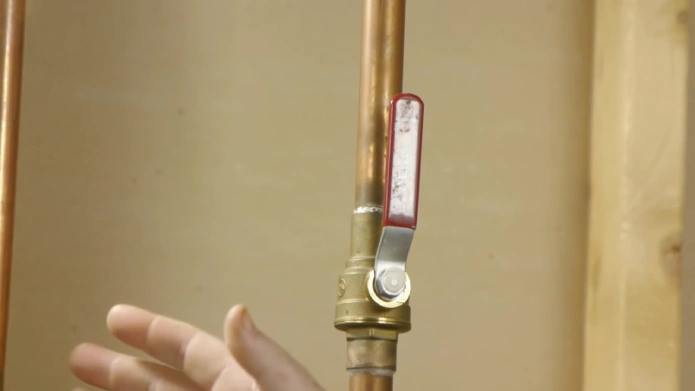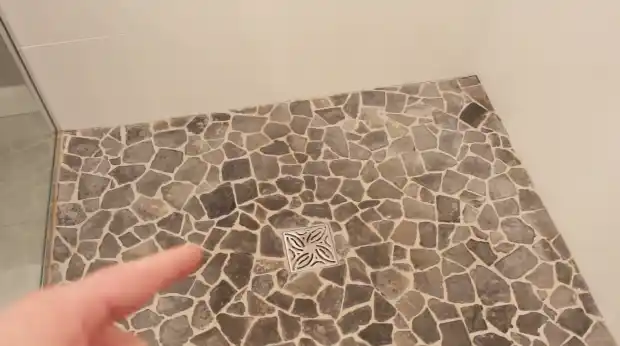Last Updated on May 4, 2023
A sump pump can be a homeowner’s best friend, but unplugging it even for the shortest time could spell disaster. Property owners would face severe consequences without their trusty sump pumps working around the clock to keep homes dry and safe from water damage.
Taking away that critical security system overnight is something you should never try. Not just because it might cause short-term issues like flooding your basement with water or malfunctioning equipment but also due to its long-term effects too.
While it may seem like a minor issue, the truth is that sump pumps are crucial for keeping your basement dry and protecting your home from potential water damage. Thus, it is strongly advised against temporarily unplugging your sump pump.
Can I Unplug My Sump Pump Overnight: Potential Risks

Sump pumps are installed to prevent water damage and automatically eject accumulated water away from your home’s foundation. But what happens if you unplug your sump pump overnight?
Here are some potential risks associated with unplugging your sump pump:
Sudden Flood
If you unplug your basement sump pump overnight, you are putting your home at risk of a sudden flood. Heavy rainfall, melting snow, or even a sudden burst pipe can flood your basement or crawl space without warning.
A sump pump is designed to pump out excess water before it has a chance to accumulate in your home. But, if it is not functioning, the floodwater will build up quickly, leading to a potential disaster in your home.
Freezing Discharge Pipe
Sump pumps pump water through a discharge pipe often located outside the home. During the winter season, the discharge pipe can freeze, preventing the sump pump from ejecting water effectively.
If you unplug the sump pump overnight in extremely cold weather, the discharge pipe can freeze over, leading to a dangerous situation where the water backup can cause the basement to flood.
Pest Infestations
If you fail to plug your sump pump back in after turning it off, you invite pests into your home. The standing water in the sump pump pit is a breeding ground for insects such as mosquitoes and cockroaches.
They use this standing water to lay their eggs, leading to an infestation in your home. Leaving your sump pump unplugged overnight can cause serious issues for your home’s hygiene and health.
Structural Damage
A sump pump plays a crucial role in maintaining the structural integrity of your home’s foundation. When the soil beneath your home is oversaturated with water, it can start to shift and move. Over time, this can cause cracks, leading to structural damage to your home.
If you disconnect your sump pump overnight, you risk overburdening the soil with excess water, leading to foundation problems and compromising the safety of your home.
Should a sump pump stay plugged in all the time?

Keeping your sump pump always plugged in and connected to a power source is crucial. Unplugging the sump pump will leave your home vulnerable to damage and increase the risk of flooding.
Moreover, sump pumps have a built-in float switch that automatically turns them on and off when water levels rise and fall. Keeping your sump pump plugged in always ensures that it is fully operational when it’s most needed.
When should you unplug a sump pump?
A sump pump is the first defense against basement flooding, so keeping it in good working condition is essential. But there are some cases when unplugging a sump pump is necessary.
Cleaning Your Sump Pump
Cleaning your sump pump regularly is crucial to ensure it functions correctly. If the sump pump becomes clogged with debris, it won’t be able to pump out water, leading to flooding in your basement.
You should unplug your sump pump before you start cleaning it. It’s best to clean your sump pump once or twice a year, depending on how often it runs. Remove any accumulated dirt or debris inside the basin, impeller, or pump screens when cleaning the sump pump.
Maintenance & Repair of the Pump
If your sump pump is not working correctly, it’s time to unplug it and perform some maintenance or repairs. One of the most common problems with sump pumps is a faulty float switch. A float switch is a mechanism that turns on and off the sump pump when the water reaches a certain level.
If the float switch is not working correctly, the sump pump won’t turn on or off, flooding your basement. It’s essential to unplug the sump pump before performing any maintenance or repair work. Some of the common maintenance tips include:
- Lubricating the motor,
- Checking for any leaks, and
- Testing the pump’s performance.
Replacement of the Backup Battery
A backup battery is an essential component of a sump pump system. It keeps the sump pump running during a power outage, ensuring your basement stays dry. However, backup batteries have a limited lifespan and must be replaced every three to four years.
If your sump pump backup battery is over four years old or is not charging correctly, it’s time to unplug and replace it. A backup battery replacement is not a job for amateurs.
Upgrading or Replacing the Pump
Upgrading or replacing a sump pump is necessary when the current one has served its useful life or when upgrading to a more robust model. When it’s time for an upgrade or replacement, it is crucial to unplug and safely disconnect the pump to avoid electrical hazards.
Once you have turned off and unplugged the pump, you can proceed with the upgrading or replacement process without any risk of electrocution.
Power Outages
Power outages are inevitable and can occur anytime, leaving your sump pump without an electrical supply. In case of a power failure, it’s wise to unplug the sump pump, especially if you don’t have a backup power generator.
If you leave the sump pump plugged during an extended power outage, it will continue to try to drain water, even if there’s no power. This could lead to damaging the pump or even burning out the motor.
It’s recommended that you unplug your sump pump during an extended power outage to avoid these types of damages.
Can I unplug and replug my sump pump?

You can unplug and replug your sump pump as needed. But there are some precautions you should take when doing so. Always turn off the power supply to the sump pump before unplugging it to avoid electrical shock.
When restarting the pump, ensure the plug is securely inserted into the outlet before turning the power back on. Also, ensure that the float switch is free of any obstructions that could prevent it from activating the pump when water levels rise.
How long should I let my sump pump run?
The duration your sump pump should run depends on several factors, such as the amount of water present, the sump basin’s size, and the pump’s strength. Generally, a sump pump will run until the water level in the basin is low enough to allow the float switch to turn off the pump.
But larger sump basins may require a more prolonged pump runtime to ensure that all the water is removed. Also, if your area is prone to flooding or experiences heavy rainfall, you may need to keep your sump pump running for an extended period to ensure the basement or crawl space remains dry.
It is recommended to refer to the specific instructions in the sump pump manual or consult a professional if you are unsure about the appropriate runtime for your sump pump.
Can I unplug my sump pump in winter?
Unplugging your sump pump during the winter months is never recommended. This is because your sump pump protects your home from potential flooding and water damage, regardless of the season. Many homeowners might believe they don’t need their sump pump during winter, but this is a misconception.
Your sump pump is responsible for removing any excess water that accumulates in your basement or crawl space, which could result from melting snow or ice or heavy winter rainfall.
If you unplug your sump pump, it won’t be able to function appropriately in the case of an unexpected thaw, causing water to collect in your basement and potentially leading to flooding and water damage.
How do freezing temperatures affect your unplugged sump pump?

Freezing temperatures can significantly threaten your sump pump if the discharge lines get frozen and clogged. Discharge lines are essential components of sump pump systems responsible for transporting excess water outside your home.
During the winter months, the water your sump pump removes might be colder than the air inside your home, causing condensation on the discharge lines. This can lead to ice accumulating on the lines, which can eventually cause them to freeze and clog.
If your sump pump is unplugged during the winter, it can’t pump out any excess water that might accumulate due to the frozen discharge lines. This can lead to the water collecting in your basement or crawl space, resulting in potential flooding and water damage.
Can I unplug my sump pump if it has an electrical fault?
If your sump pump has an electrical fault, the first step is to turn off the power source to the pump to prevent any potential electrical hazards. You should also reset the circuit breaker and ensure it functions properly before attempting to unplug the sump pump.
Once you have confirmed that the circuit breaker is okay, unplug the faulty sump pump from the electrical outlet. If the fault is minor, you may be able to fix it by yourself. However, seeking professional help for major or more complicated issues is best.
Leaving a faulty sump pump unattended can lead to unexpected basement flooding, which can cause significant damage to your property. It is essential to address any electrical or other faults as soon as possible to ensure the proper functioning of your sump pump.
Protect your Basement: Don’t Disconnect Your Sump Pump Overnight
To safeguard your home from the devastating effects of basement flooding, your sump pump should never be disconnected without careful consideration. Even in cold weather conditions when it may seem least likely to flood, water can still make its way into the pit if you’re not vigilant and prepared.
Ensuring that your sump pump is always working correctly by scheduling maintenance checks is key to avoiding potential inundation. Also, don’t take any chances with possibly costly plumbing disasters.



